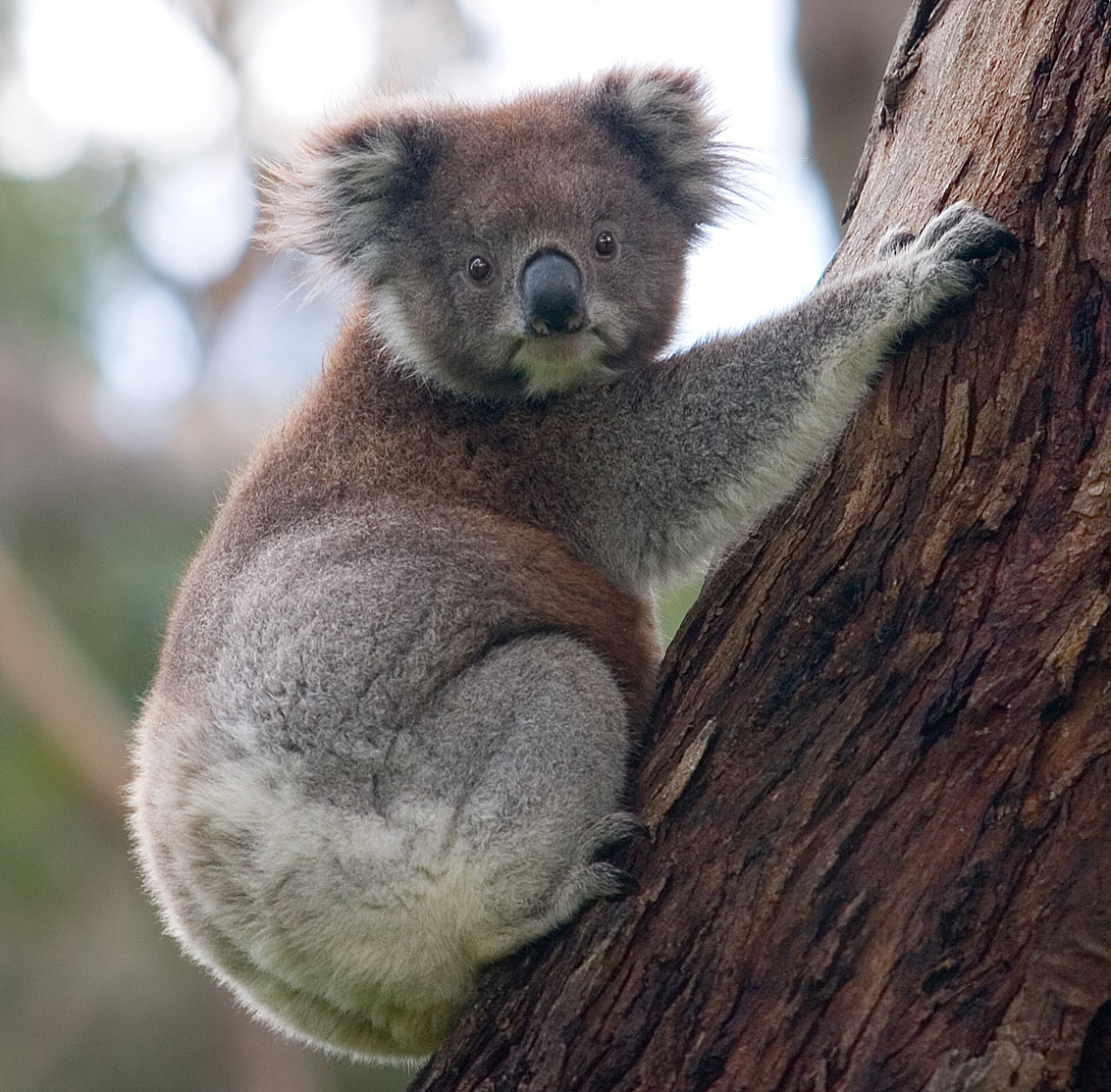Koalas at risk as trees lose nutrients
Greg Roberts | April 05, 2008
KOALAS and other leaf-eating animals face a bleak future, with new research showing eucalyptus leaves are becoming inedible because of climate change.
Australian National University science professor Bill Foley says: "What we're seeing, essentially, is that the staple diet of these animals is being turned to leather. This is potentially a very significant development for the future of some marsupial populations. Life is set to become extremely difficult for these animals."
James Cook University researcher Ivan Lawler found through experiments in greenhouses that increased levels of carbon dioxide reduced the levels of nitrogen and other nutrients in eucalyptus leaves and boosted tannins, a naturally occurring chemical toxin.
As a result, the levels of protein in the leaves, essential to the survival of leaf-eating marsupials, fell sharply.
Dr Lawler said eucalyptus leaves were already poor nutritionally, with low protein levels, requiring a koala to eat 700g a day to survive.
"With more carbon dioxide, animals need to eat more and more leaves to get their required protein levels," he said.
"The balance in the leaves shifts from nutrients to non-nutritional fibre. It eventually reaches a threshold when leaves are no longer tenable as a food source.
"The food chain for these animals is very finely balanced, and a small change can have serious consequences."
Koalas and greater gliders depend entirely on eucalyptus leaves for food, while some other marsupials, including brushtail and ringtail possums and many wallaby species, feed extensively on the leaves. And numerous insect species feed exclusively on eucalyptus leaves.
Scientists have reported mysterious declines in populations of greater gliders and brushtail possums in parts of Queensland in areas where the bushland remains in pristine condition, and where there are no apparent pressures from hunting, disease or other factors. Greater gliders have disappeared from places where they were numerous 20 years ago.
Zoologist Jane De Gabriel said the falling nutrient levels in eucalyptus leaves could explain the population declines. Ms De Gabriel found from her research in woodlands west of Townsville that brushtail possums bred more frequently in areas of bushland with high levels of protein in the eucalyptus leaves. The breeding success rate was five times that of possums in areas with low protein levels.
"This suggests that in areas where nutrient levels are inadequate, animals will not be able to reproduce successfully," Ms De Gabriel said.
"What follows from that are extinctions of wildlife populations. It's pretty scary stuff."
Climate change has been linked to changes in the status and distribution of many wildlife species. Animals most at risk in this country are those living at high altitudes in Queensland's wet tropics and in the alps.

Oh dear.
**************
Today was a busy day - visiting Klaudia, Sally and Kettles in the morning with Kane (we hadn't caught up since before Christmas), going to a retirement party in the afternoon and then some tree pruning.
No comments:
Post a Comment